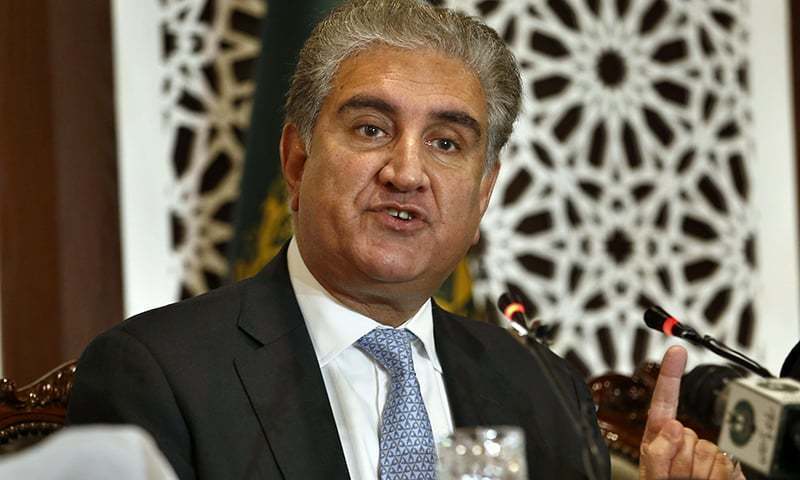UNITED NATIONS: Foreign Minister Shah Mehmood Qureshi has assured the international community that Pakistan is taking “legislative initiatives” to curb violence against women.
Addressing a high-level meeting on the 25th anniversary of the World Conference on Women on Thursday, he also said that the National Action Plan on Human Rights had ‘protection of women’ as one of its key priority areas.
“Through legislative initiatives, we are continuously addressing the issues of violence against women, domestic abuse, harassment, social and property rights protection,” Mr Qureshi said, adding that the government had also set up protection centres and a 24-hour helpline (1099) to provide free legal advice, redressal and referral mechanism to women.
October 1, 2020 marked the 25th anniversary of the Beijing Declaration and the Platform for Action, which was adopted unanimously by 189 countries. The declaration laid down the agenda for women’s empowerment and is considered a key global policy document on gender equality.
However, UN Secretary-General António Guterres and other world leaders, who addressed this high-level meeting on the sidelines of the 75th UN General Assembly, acknowledged that this empowerment had not happened yet. In 1995, when the declaration was signed in Beijing, there were 12 female heads of state or government. Today, there are only 22 among 193 countries. A recent World Bank report said it could take 150 years for women to achieve parity in lifetime earned income.
Urging people everywhere to “push back” against the forces holding up equality for women, the UN chief said this was fundamentally a question of power.
“We need to start now ... to recapture and ‘fast forward’ from the modest gains made since 1995 that are now under threat,” Phumzile Mlambo-Ngcuka, executive director of UN Women, told leaders joining the virtual conference. “We need big, bold steps, not incremental ones.”
German Chancellor Angela Merkel told the virtual meeting that states with women leaders were “the very states that are successful, economically and socially”. She said the states that resolved their conflicts peacefully “are also often those where women are among those shouldering responsibility”.
President Emmanuel Macron of France lamented that “everywhere, women’s rights are under attack, as are human rights, from which they are inseparable”.
Ethiopia’s first female President Sahle-Work Zewde said that while women were in the front lines in fighting the Covid-19 pandemic, “they are also being pushed to the edges because of its multifaceted impacts”.
She said that in much of the developing world, women depended on the informal economy to earn their living, and now “they find themselves in extremely difficult condition to sustain the lives and well-being of their families”.
Reports in the US media show that the pandemic has also made women more vulnerable to domestic violence. Yet, only 48 countries have included violence against women in their Covid-19 response plans, a UN report says.
Published in Dawn, October 3rd, 2020












































